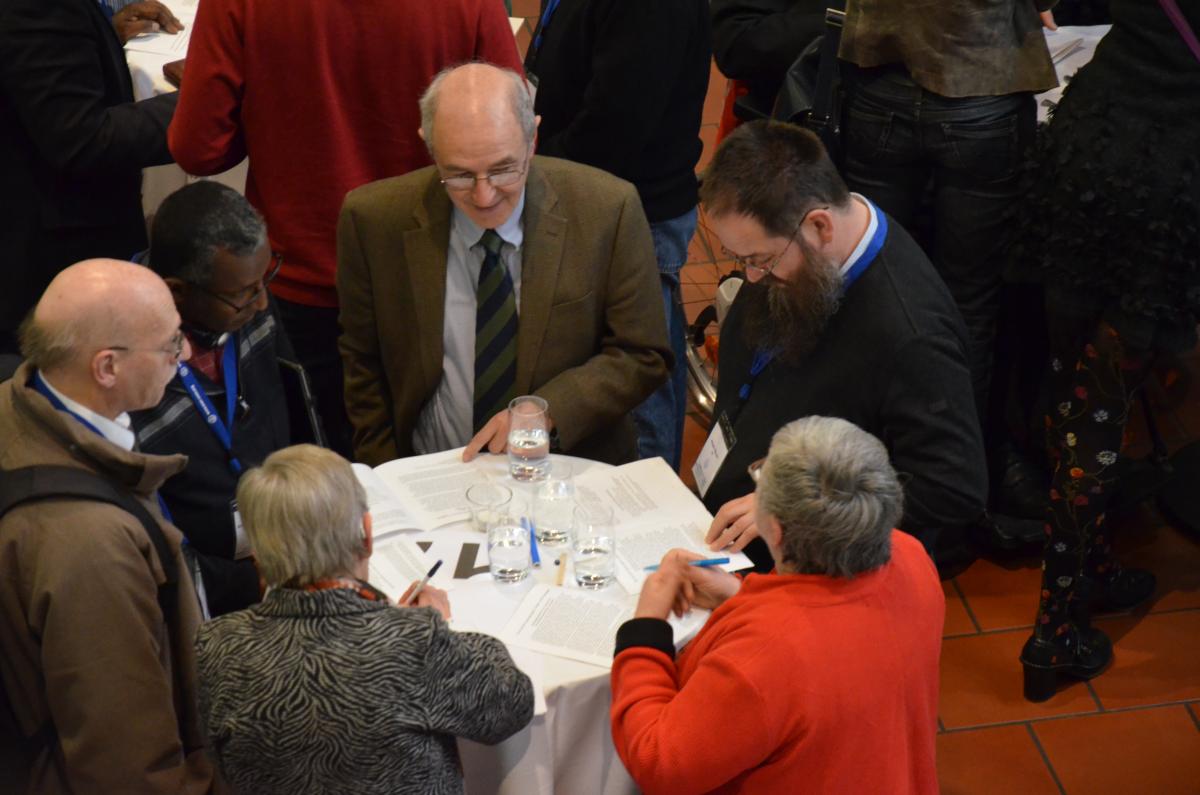A rediscovery of Scripture was both a root and a fruit of the Reformation, the movement out of which Anabaptism grew. Not that the Bible had been lost, but it was not accessible to the average person. Nor did many people who understood themselves to be Christian have the conviction that the Bible has something to say about how they lived. Anabaptists in particular are characterized by our attention to Scripture, to the point of sometimes even appropriating the moniker “people of the Book.”
Mennonite World Conference is calling us to recognize the 500 year anniversary of the beginning of the movement that birthed Anabaptism and urged us to examine Scripture for guidance in our everyday lives. It is a remembrance, for though there is much to be celebrated in the Reformation, there was much schism, which is something to be mourned. MWC’s 10-year span of commemoration events is called Renewal 2027.
The first Renewal 2027 event occurred in February 2017 and was called “Transformed by the Word: Reading the Bible in Anabaptist perspectives.”
This issue of Courier shares presentations from that first of 10 annual events to mark the birth of the Anabaptist movement.
What does reading Scripture look like today, 500 years after the Radical Reformation? We may read it on our phones instead of on paper. We may have several translation options to read it in our own language. Some things have changed, but the stories remain the same.
We have not shaken in our conviction it is the Word of God. However, we may have added to our understanding of how it was written, and how therefore we read it.
In this issue, Antonio Fernandez Gonzalez of the Peace Commission calls Anabaptists back to the imperative interpretive key: the Word of God, Jesus Christ. God incarnate. The simplicity of written words may tempt us to draw simple pronouncement from what we read, but Gonzalez encourages us to keep Jesus as our guide. God has inspired the Bible, but the Bible is not Godself.
Valerie Rempel of the Faith and Life Commission challenges Anabaptists to approach the Bible with the radical zeal of the first reformers we admire. But she calls us to do so in full awareness of the world we inhabit. She invites us to live out our faith with a desire to come together with other believers – sometimes different in perspective than us – “to explore, to study, to learn from each other and to spur each other on to love and good deeds.”
In the Perspectives section, the members of the Young AnaBaptists Committee explored the Word itself. These young leaders representing five continental regions interpret the Great Commission according to their understanding from their surroundings.
Argentina – first location of Anabaptist mission in Latin America – marks 100 years in 2017. For Courier’s country profile, church leader Mario Snyder tells the story of Iglesia Evangélica Menonita Argentina.
Every 500 years, American religious scholar Phyllis Tickle suggested, Christianity sees a shift. The Reformation started a 500-year focus on Scripture. Perhaps, has the time come to begin another shift in focus? Some have suggested the next 500 years may be a time when we learn more about the Holy Spirit. Keep tuned for 2018’s Renewal 2027 event in Kenya where speakers will address “The Holy Spirit transforming us”!
—Karla Braun is editor of Courier and writer for Mennonite World Conference. She lives in Winnipeg, Canada.
This article first appeared in Courier/Correo/Courrier October 2017
